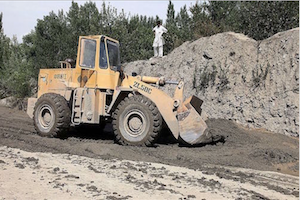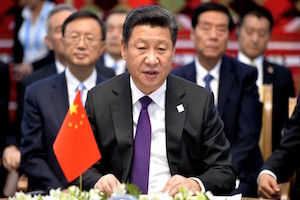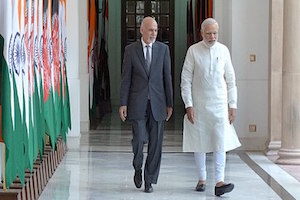Afghanistan's Mineral Deposits Again Attract International Interest, Unrest and Smuggling
By John C. K. Daly
September 27, 2017, the CACI Analyst
On August 22, after nearly 16 years of war in Afghanistan, U.S. President Donald Trump announced his intention to increase the U.S. military presence there, extending the longest war in U.S. history and adding billions more dollars to its cost, now estimated to over US$ 1 trillion since 2001. In searching for revenue streams to support this outlay an idea that has been around for more than a decade is being revived: exploiting Afghanistan’s rich, underused mineral wealth. Despite the extent of the country’s mineral deposits being well known, many impediments remain to their development despite international interest.

China's Peacemaking Between Pakistan and Afghanistan
By Sudha Ramachandran
September 7, 2017, the CACI Analyst
With its shuttle diplomacy between Pakistan and Afghanistan to ease tensions between the two neighbors, China has expanded its peacemaking role in the Afghan conflict. Successful peacemaking is vital for ensuring stability in the region, which in turn is needed to secure the future of China’s Belt and Road Initiative. It will require Beijing to move beyond offering Kabul and Islamabad economic incentives to address the core issue underlying Afghanistan-Pakistan estrangement: alleged support to acts of terror directed against each other. Given its own strong interests in undertaking peacemaking, can China be an honest broker?

Why Isolating Pakistan Will Not Solve Kabul's Problems
By Rizwan Zeb
August 7, 2017, the CACI Analyst
Afghanistan has been a factor in the rivalry between India and Pakistan since 1947. Prime Minister Narendra Modi has embarked upon a campaign to isolate Pakistan from developments in Afghanistan. The Sixth Heart of Asia summit, held in Amritsar, India in December 2016, was overshadowed by this increasing enmity. Afghanistan’s President Ashraf Ghani sided with Modi, accusing Islamabad of all ills in Afghanistan. New Delhi’s and Kabul’s approach at Amritsar must be avoided in the future. Kabul needs to put its house in order and should not become a party to Indo-Pakistan rivalry. New Delhi and Islamabad also need to understand that expanding this rivalry into Afghanistan will not serve their interests.

China – Pakistan Economic Corridor: An Opportunity for Central Asia?
By Fuad Shahbazov
June 19, 2017, the CACI Analyst
In May 2017, China hosted an international summit in Beijing gathering 28 heads of state from four continents and representatives of various international organizations. The summit was devoted to the Belt and Road Initiative, referring to overland and maritime routes across the Eurasian landmass. One of the most significant moments of the summit was the meeting between China’s and Pakistan’s leaders and the signing of a new agreement (MoU), adding to the US$ 46 billion already pledged for the China-Pakistan Economic Corridor (CPEC), a network of rail, road and energy infrastructure. During the event, Pakistan’s Prime Minister Nawaz Sharif met with the leaders of Kazakhstan, Uzbekistan, and Kyrgyzstan, requesting their investment in CPEC.
Afghanistan Clashes with Iran over Dam Construction
By Sudha Ramachandran
May 2, 2017, the CACI Analyst
Afghanistan’s building of dams on its trans-boundary rivers has drawn the ire of the lower riparian countries. The construction of the Kamal Khan Dam on the Helmand River has caused grave concern in Iran as it could destabilize the situation in its restive Sistan-Baluchistan province. To pressure Kabul to halt construction of the dam, Iran is said to be using Taliban fighters to sabotage projects. Conflicts over water sharing have the potential to turn violent. Iran and Afghanistan need to resolve the issue through talks.





